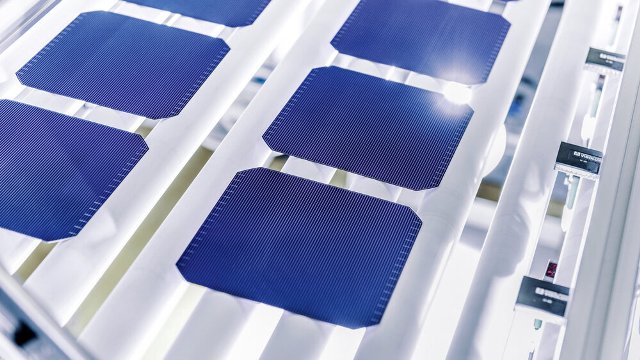The abrupt shutdown of Swiss solar manufacturer Meyer Burger’s factory in Goodyear, Arizona, signals a significant setback for the U.S. clean energy ambitions and the global solar industry’s efforts to diversify supply chains away from Asia, particularly China.
Meyer Burger’s exit from the U.S. market highlights the challenges that Western solar manufacturers face in competing with lower-cost imports from Asia, despite policy incentives designed to stimulate domestic production.
The Goodyear factory, announced with much optimism in 2021, was meant to be a symbol of the Joe Biden administration’s clean energy push — part of a strategy to create “green jobs” and reduce dependence on China for solar technology.
Yet, less than three years later, the factory has shut its doors, laying off all 282 workers. The company cited financial distress, exacerbated by the pressure of cheaper Asian imports and the uncertain future of clean energy incentives in the U.S. This is especially relevant as a bill currently under consideration in Congress — aligned with former President Donald Trump’s campaign promises — could roll back or phase out these incentives.
Meyer Burger’s struggles mirror a broader pattern in the solar industry: While governments push for domestic manufacturing to support clean energy transitions, global market dynamics — dominated by China’s low-cost production — undercut these efforts. For instance, the U.S. has been attempting to build a resilient, self-sufficient clean energy supply chain, but the Meyer Burger case underscores the fragility of these efforts without sustained policy support and industrial competitiveness.
The company’s situation is also a warning sign for other clean energy firms and policymakers: If incentives are withdrawn or weakened, and global competition remains skewed by lower costs in Asia, many companies may find it financially unsustainable to manufacture domestically. Meyer Burger’s canceled plans for a second U.S. factory in Colorado further illustrate the uncertainty plaguing the sector.
Looking ahead, the fate of Meyer Burger’s Goodyear facility depends on restructuring talks with bondholders, but its closure raises larger questions about the viability of U.S.-based solar manufacturing and the future of Joe Biden’s clean energy job creation narrative.
For the U.S. clean energy sector to thrive, a long-term, stable policy framework, coupled with measures to level the playing field against Asian imports, may be essential. Without it, Meyer Burger’s story could become a cautionary tale of missed opportunities in the global clean energy race.
GreentechLead.com News Desk

